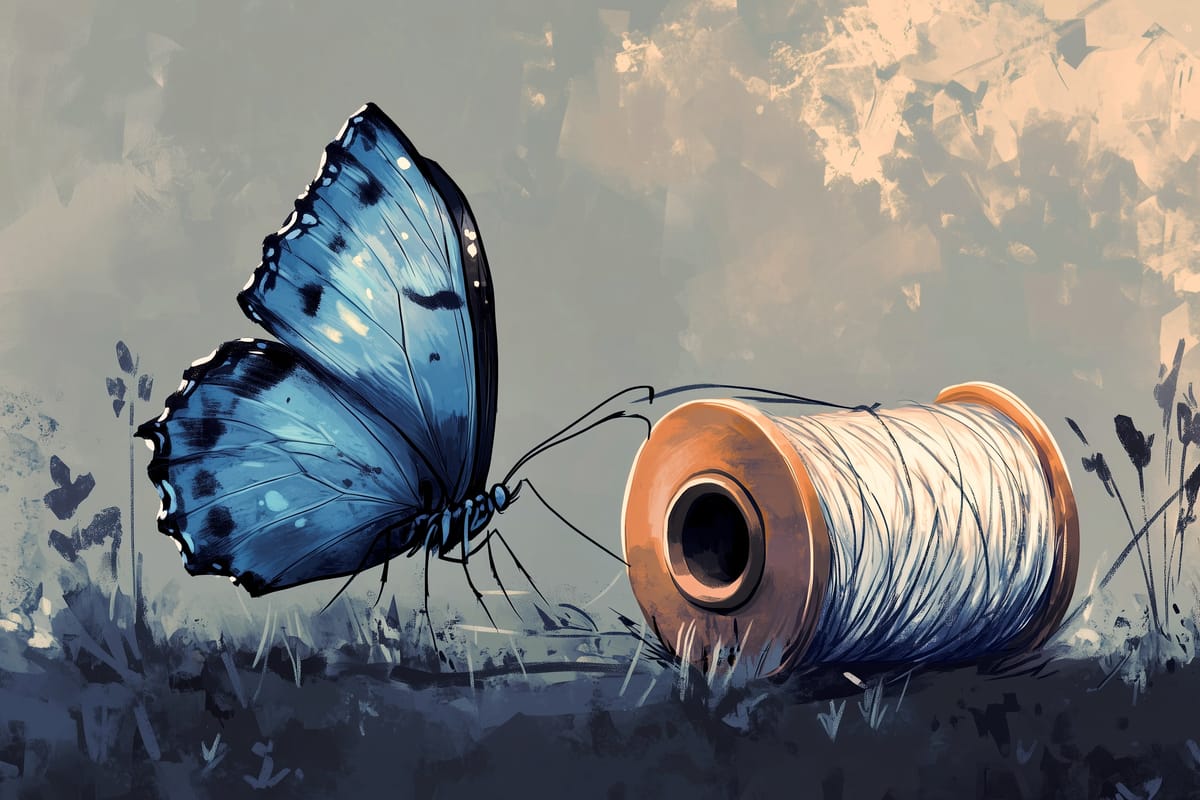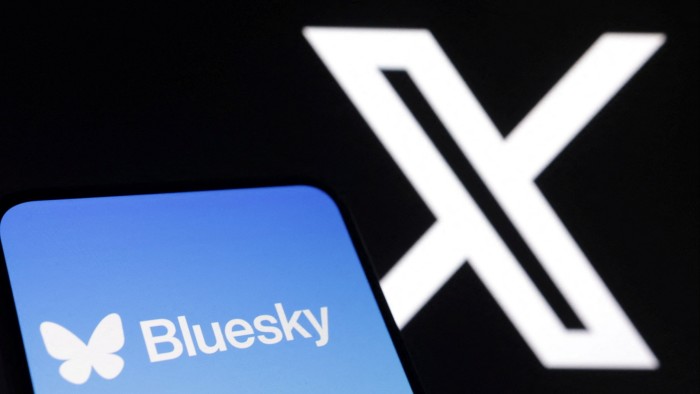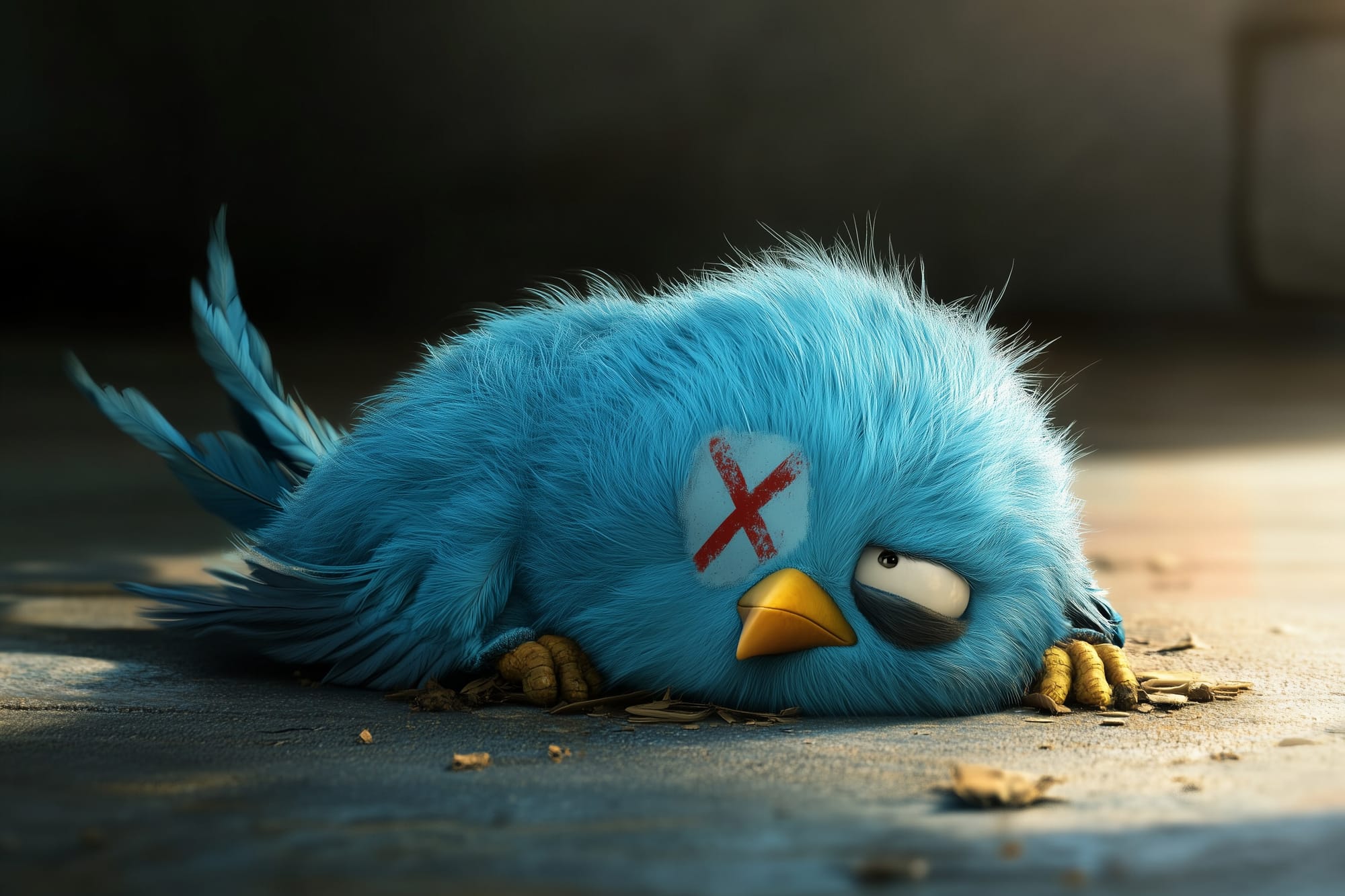The post X-battle: Threads is down, but not out
The fight to capture ex-X users heats up, as Meta, the sleeping giant, wakes up and realises that it has a blue butterfly problem…

Threads verses Bluesky: Fight!
In light of the stunning growth of Bluesky over the last few weeks, Meta has suddenly woken up and realised that they might be blowing the massive lead they had with Threads. For those who are sensible enough not to follow these things as closely as me, Threads is Meta’s Twitter clone, that saw explosive growth off the back of the Instagram social graph. Join Threads, and you’re already connected with everyone you’re connected with on Instagram.
But that’s not all that they took from Instagram: the algorithm came too. And regular Threads users slowly realised that they weren’t seeing the people that they’d chosen to follow, but random attention farmers, who treated the algorithm as a game to be won.
That’s not why many of us go to microblogging platforms (as they were known in the early days of Twitter), and has led to it being a frustrating experience for many users. Add to that an algorithmic bias towards older, highly engaged posts, rather than current ones, and a brutal purging of news and politics from the feed, and you had a service that looked a bit like Twitter, but behaved a lot like Instagram.
Respooling the Threads
A sudden flurry of announcements suggests that Meta has realised its mistake, and is rapidly trying to curse correct:
- Threads Announced Updates To Search, Video Viewing and Trends
- Threads tests the ability for users to choose their preferred default feed
The latter of the two is the most telling: custom feed is one of Bluesky’s defining features. As Lifehacker put it: Threads is trying to make itself more like Bluesky.
Social media competition at last
This is a good thing. For a while, it looked like Meta was just going to waltz in, take the majority of the ground that Twitter once covered, and leave us with a further consolidation of social media power. After all. Threads, Instagram, Facebook, and WhatsApp all sit under the same Meta roof.
Instead, we have Bluesky emerging as heir apparent to Twitter, and Threads trying to be a viable competitor. Competition is good. It’ll drive innovation on both platforms. “Pick your feed” is an innovation we should have seen years ago, but with a single platform owning each type of network, there was less drive to innovation. With multiple players in the same space, creativity is happening.
This doesn’t make things easy, of course. If Threads course corrects, we’re looking at another fragmenting of the social media world, and more places to check to see if our audience are congregating there. But a fragmented social media ecosystem gives less power to any one player — and that has to be good for society.
Two handy tools for the Bluesky age
Looking to make more use of the emergent networks? Try these:
Bluesky network analyser
Shows you the most followed people among the people you’re following:
Leans towards the obvious social media celebs, but can be useful
Sill, the link finder
Once upon a time, there was a superb tool called Nuzzel, that showed you the most shared links among people you followed on Twitter. It was great, and I used it religiously, until Twitter acquired it. And shut it down.
The idea’s back in the form of Sill, which surfaces the most-shared links on your Bluesky and Mastodon accounts. Still in public beta, but already useful. I’m looking forward to giving them money as soon as possible so it stays alive.
More on Threads versus Bluesky
I’m back in the press again, being quoted in a Financial Times piece on the clash between the two platforms.

(Hannah's a former student — I taught her on City's MA Financial Journalism some years ago. What did I teach her? Social media, of course…)
Quickies
These are the most shared stories in my Bluesky and Mastodon accounts, taken from my Sill (see above) daily email:
- Inside Bluesky’s growth surge — in-depth reporting from Casey Newton
- A note about the Knight Institute, X and Bluesky — the freedom of the press-defending institution eXits
- Donald Trump’s return sends shivers through the anti-misinformation world — government by misinformation misbecoming the norm…
- Why I have resigned from the Royal Society — hint: there’s a strange Musk inside.
Always own the space you publish to
From the “recurring theme in these parts” dept: a good piece from MG Siegler, marking his 20 years writing for the web.
A lot of what I have written over the two decades – thousands of posts – remains online, but a lot also doesn't. Publications come and go. And platforms come and go. Only the web remains. And while I wasn't savvy enough to recognize that in 2004 when I was just a bored young person living by myself in a new city, I do now.
It saddens me that much of the first decade of my professional career is unavailable to me. The first half was never on the web at all, and if it still exists, it will only be in copyright deposit libraries. And my professional writing romance between 1997 and 2005 is locked up behind a very expensive paywall. But that’s the publisher’s prerogative: it’s their content.
My own work? It’s always been on a platform I know I can get it off easily if I need to move.

And finally…
Ewan Spence on what we lose when we leave Twitter:
Yet, I can’t help but feel the loss of connections, emotions, and real life. So many things happened on Twitter. Sure, there are the big moments that history will record elsewhere, but the smaller moments that mean so much to smaller groups of people, be they communities around websites, local groups, or even close groups of friends, will have been lost.
And it’s not our fault. It’s the fault of Elon Musk. He held our connections and information hostage, thinking that no one would ever leave because the switching cost would be too high and he could carry on grifting.
I joined Twitter in 2006, and met Ewan within a month of that (in Paris, ironically, given that he's Scottish and I was raised in Scotland). Those first few years on the platform were an incredibly friendly, creative and experimental time. I miss them.
But those times were on their way out even before Musk got involved.








